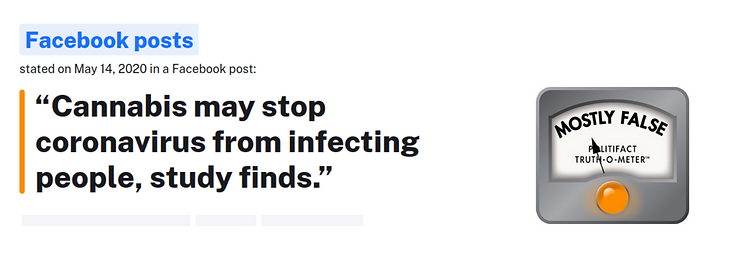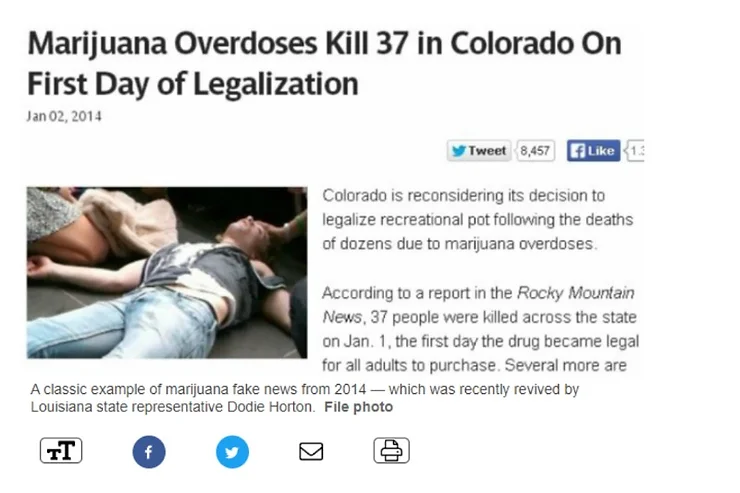A recent article published on Forbes, a generally trustworthy media outlet, asserted that the DEA recently labeled delta-8 and -9 THC-O as controlled substances and thus illegal. This recent clarification was pointing out how the agency is choosing to enforce the intention of the Farm Bill.
Of course, the internet was set ablaze with people sharing and resharing the piece, and many of our customers were worried their favorite Delta 8 products would vanish from our catalog and shelves.
After close examination, it turns out the article seems to be written by a journalist that covers the cannabis industry from a European perspective. The piece does contain a lot of factual information, yet reaches inaccurate and alarming conclusions that might be premised on the lack of knowledge about American law.
A quick review of recent federal court decisions reveals that Delta 8 products have been deemed to “fit comfortably within the statutory definition of hemp.” The problem is the “O” part of the molecule. THC-O and HHC-O are 100% synthetic varieties of THC manufactured in labs, so they´re not protected by the Farm Bill.
However, this is just an example of the slew of unclear and sensationalized headlines that flood the internet all day, hoping people would only stop at the headline and take it at face value. The cannabinoid industry is particularly sensitive to the information available to consumers and the general public. Those who are unfamiliar with cannabis research usually fall victim to misinformation that perpetuates harmful myths about the plant. On the other hand, those who wish to learn about the benefits and uses of this beautiful plant can be discouraged when encountering contradicting information.
Unfortunately, fake news about THC products is nothing new. For example, a viral post from an allegedly satiric article in 2014 stated that 37 were killed by THC overdose.
If you are relatively familiar with the topic, the piece might get a few snorts out of you. Cannabis overdose is extremely rare and very unlikely to be life-threatening.
The problem is that people who never got past the headline fell for it. Hook, line, and sinker. This included a representative of the local government who later went on to spread the fake news.
Another myth that refuses to die is that cannabis legalization fosters consumption among teenagers. Every now and then, modern teetotallers love making these baseless assertions every time a change in current laws is on the ballot. However, studies demonstrate that use prevalence among minors actually decreases after legalization or at least remains unchanged.
And the barrage of misleading claims comes from all sides.
There has been no shortage of articles making wild claims about the miraculous properties of THC and Delta 8 products.
Just last year, millions of users shared a post asserting that cannabis might be used to stop the spread of Covid-19.

Of course, fact-checking agencies were quick to flag these as false. But the damage was already done.
How to avoid fake news about cannabis?
Well, this is the age of the internet. We have access to all kinds of information, true and false. So there is no way to prevent coming across patently absurd claims. However, there are a few pointers that might help you increase the quality of the information you consume.
Be wary of police sources: Yes, official channels must be respected. However, well-meaning officers have been known to exaggerate some claims to “raise awareness” in their communities. So, it is always advisable to double-check all claims using other sources.
Go beyond the headlines: Sometimes, there are headlines that sound alarming, but when you read the whole article, you might find that it does not really support the click-baity title.
Do some lateral reading: Many outlets are run by journalists who basically copy/paste what other, more reputable sources have written. So, whenever you stumble upon an article making any claim about cannabis, THC, or Delta 8 products, feel free to see if other more established outlets are reporting the same.
Check references: If you find an article that makes assertions about cannabis products but does not provide links, it is better to take it with a grain of salt. Search independently or use Google Scholar to find out what the latest studies say in this regard.
Keep your biases in check: This goes both ways. Our biases make us more prone to take any information that confirms our beliefs as facts. If a headline or article seems to completely prove your point, take a pause, give it another read, and follow the tips mentioned above.
Whether you´re a seasoned cannabis enjoyer or a complete beginner wanting to know if our products are right for you, you always need the best and latest information.
At D8 Austin, we work hard to provide our customers with the latest information about cannabis, THC, CBD oil, and Delta 8 products. If you have any questions regarding the properties and benefits of cannabinoids or which product is best for your specific needs, visit our store or contact our experienced budtenders.

